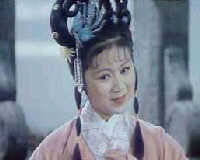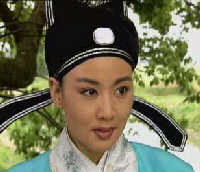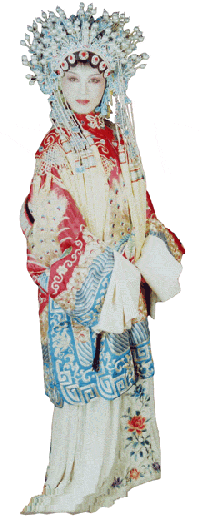
Once called "Huangmei Tune" or "Caicha Opera",Huangmei Operais one of the most famous traditional operas in China.
As a local drama in East China'sAnhui Province, Huangmei Opera actually originated in Huangmei County,Hubei Province, during the 18th century when Chinese local operas were flourishing.
After being introduced to Anhui Province, Huangmei Opera swiftly took off in Anqing City and many other neighboring provinces. Now, the opera has grown into a professional performance piece in both rural and urban areas, becoming a recreational activity for millions of people.
 Origin
Origin
Huangmei Opera was derived from "Caicha Tune", the folk ditties people sang while picking tea. It is a combination of local folk songs, dances and some widespread ancient operas. Bordering on Anhui Province, Huangmei County in Hubei Province is famous for its tea and tea-picking songs; it is also where Huangmei Opera got its original name -- "Caicha Opera" ("tea-picking opera").
Before 1949, rivers and lakes in Anhui Province were often flooded and the displaced victims had to seek refuge in neighboring provinces. As a result, Huangmei Opera of Hubei Province was brought to Anhui by victims of flood and famine.
Performed frequently in villages and towns by small groups of local people, Huangmei Opera grew increasingly popular. It developed from folk tunes into short dramas and even complete theatrical works, which can be performed on stage and as TV series.
Nowadays, the lively short operas, called "everyday shows", are still performed frequently. Even "big plays" are almost always about folk life. The performers infuse simple humor into all of the 72 short plays and 36 full-length dramas about the privileged life for a down-to-earth element.
From the time that Huangmei Opera became popular in rural areas, it had gone a long way from its status as a recreational activity to professional performances in big cities. It began as a diversion acted by and for peasants and artisans at festivals and special solar periods (the 24 weather-oriented divisions of the year).
As time went by, seasonal, semi-professional groups appeared, and they performed together with troupes that specialized in more popular forms of the art, like theBeijingOpera and Anhui Opera. It was not until 1926 -- 140 years after its advent -- that Huangmei Opera managed to reach Anqing, then the capital of Anhui Province. It appeared inShanghaiin 1934, but only on makeshift stages in the city's poor quarters where it was denounced as "bawdy entertainment" and its unfortunate performers were harried by local authorities.
Since 1949, with support from the Chinese government, Huangmei Opera has blossomed.
In the early years, most Huangmei Opera programmes were based on Chinese traditional folk tales. But as the opera flourished, more and more stories from other opera genres were incorporated. Talented Huangmei artists even adapted the works of Shakespearein the name of international development. During the First China Shakespeare Festival (1986), the Anhui Provincial Huangmei Opera Troupe presented an adaptation of Shakespeare's Much Ado About Nothing - a milestone that marked the success of the international development of Huangmei Opera.
Nowadays, Huangmei Opera is mainly popular in Anhui, Jiangxi and Hubei provinces, and some of its famous actors and actresses include Yan Fengying, Wang Shaofang and Pan Jingli. The opera has also spread its fame both home and abroad with its sweet melodies and lyrics, graceful sounds and movements, and beautiful costumes and sets. 
Huangmei fans can be found not only on the Chinese mainland but also inHong Kong,Macao,Taiwan, Malaysia, Japan, and even Europe.
During the First China Shakespeare Festival in 1986, audiences both at home and abroad saw an adaptation of Much Ado about Nothing by the Anhui Provincial Huangmei Opera Troupe with great respect and interest. British Prime Minister Margaret Thatcher sent her personal congratulations to Cao Yu, chairman of the Chinese Dramatists' Association, saying that Shakespeare would have been greatly amused by the imaginative representation.
 Characteristics
Characteristics
 Huangmei Opera costumes contain a distinctive local flavor of China's ancient past. In most operas, artists wear ancient-style garments since most Huangmei operas are based on Chinese folk tales. Since the contents of the opera are often varied, costumes and sets change according to the opera's social environment and customs. In modern Huangmei operas, like "A Woman of Huizhou", artists simply wear ordinary clothes when performing the modern play.
Huangmei Opera costumes contain a distinctive local flavor of China's ancient past. In most operas, artists wear ancient-style garments since most Huangmei operas are based on Chinese folk tales. Since the contents of the opera are often varied, costumes and sets change according to the opera's social environment and customs. In modern Huangmei operas, like "A Woman of Huizhou", artists simply wear ordinary clothes when performing the modern play.
Huangmei Opera music features folk songs that are graceful and sweet-sounding. Three types of music are used: coloratura, character songs and basic tunes. The 104 coloratura tunes are taken from folk songs, tea-picking songs and other ditties. A short opera usually has its own features and is often named after the title of its most popular piece. Since Huangmei Opera music is light and lyrical, a good performer must be skilled in performing such a style. Singing is not only the main approach to characterization: It also distinguishes Huangmei Opera both stylistically and musically.
Huangmei Opera is easy to understand and learn thanks to its lyrical tunes, simple words and literary tradition. Like other Chinese local operas, Huangmei Opera also adopts the local dialect. Since the language is a mixture of northern and southern styles, it is therefore easy to imitate and pleasant to native ears. (This factor also helped disseminate Huangmei Opera.) Its local flavor and folk style are most vividly revealed in its original and lively dialogue, which is both spoken and sung.
Passion, simplicity and purity is what makes Huangmei Opera an enduring drama appreciated by all.
 Repertoires
Repertoires
Over the past 200 years, Huangmei Opera has developed quite a number of repertoires much loved by people.
In particular, Anhui Provincial Huangmei Opera Troupe's "The Heavenly Maid and the Mortal" ushered in a new era for the opera in its development history. Although the play was a traditional favorite, the troupe revised the script, music and make-up.
 In the story, theJade Emperorof Heaven's seventh and youngest daughter, "Seventh Fairy Maiden," who was also the most beautiful, boldly flees down to earth in search of a love of her own choosing. She marries Dong Yong, an honest, kind-hearted serf, in defiance of her father. Persuading the cruel landlord to shorten Dong Yong's three-year lease to 100 days, the young couple prepare to leave and set up their home. However, theJadeEmperor snatches his daughter back to heaven, breaking up the happy romance. Pregnant and indignant, she writes a letter in her own blood to Dong, which says: "When next spring comes and the flowers bloom, your son shall be yours beneath the scholar trees."
In the story, theJade Emperorof Heaven's seventh and youngest daughter, "Seventh Fairy Maiden," who was also the most beautiful, boldly flees down to earth in search of a love of her own choosing. She marries Dong Yong, an honest, kind-hearted serf, in defiance of her father. Persuading the cruel landlord to shorten Dong Yong's three-year lease to 100 days, the young couple prepare to leave and set up their home. However, theJadeEmperor snatches his daughter back to heaven, breaking up the happy romance. Pregnant and indignant, she writes a letter in her own blood to Dong, which says: "When next spring comes and the flowers bloom, your son shall be yours beneath the scholar trees."
The moving plot, beautiful music and top-notch singing have made the play a household favorite. Filmed in 1956, when there were very few operatic films, the piece enjoyed 150,000 domestic showings and has traveled to more than a dozen places abroad. Its success is owed much to the work of such renowned performers as Yan Fengying, a country girl from Luojialing in Tongcheng County, Anhui Province. As versatile performer who played a variety of roles, Yan died young, which was a great loss to the profession. Anqing city has erected a statue of Yan Fengying as the "Seventh Fairy Maiden" in a park to commemorate her great contributions.

Presented by Chinadaily.com.cn Registration Number: 10023870-7
Copyright © Ministry of Culture, P.R.China. All rights reserved